The Bittman Project featured an article about the Agroecology Fund in January of 2024. You can find the original article here.
Strengthening community-led agroecological practices and fighting the vested interests that undermine them are the keys
Careful readers of The Bittman Project will note that we are increasingly giving active support to some of our especially like-minded partners. Among these is Agroecology Fund, a participatory grantmaking fund that supports agroecology movements from Mexico to Mali to Malaysia.
This global network comprises a diverse, ground-up movement of allied organizations all geared to building sustainable and equitable food systems, while advocating for policies that enable agroecology and, of course, railing against the vested interests that undermine it.
Agroecology Fund applies its resources to the intersection of these movements, where farmers, eaters, scientists, journalists, policy-makers, activists, and environmentalists collaborate for grassroots-led change. Collaborations include strategies as diverse and complementary as researching soil health, creating agroecology schools and seed banks, offering new models of agricultural extension, passing local land and water use ordinances, and resisting barriers to agroecology, such as corporate control of seeds.
Agroecology Fund fortifies these multi-sectoral movements around the world to build power and transform the food system. This photo essay shares how grantee partners in Kenya are creating food sovereignty by strengthening community-led agroecological practices and solutions.
The above photo is of Samuel Maina, who uses Organic Agriculture Centre of Kenya (OACK)’s biofertilizer at his organic farm, which sits on a hill in Kiamakara Village, Muranga County. In the valley below, farmers produce Kenyan tea — one of the country’s main exports — with chemical fertilizers.
Local demand for Samuel’s organic produce is huge. Nonetheless, he spoke of the safety he feels in diversifying his income. He, too, has a lot in the valley where he grows non-organic tea, a product which he claims Kenya has strict regulations around. “It’s not organic, because we have that policy,” he explains. “You have to use the [chemical] fertilizers that they give you to control the taste of tea, so that it will not be different with every farmer.”
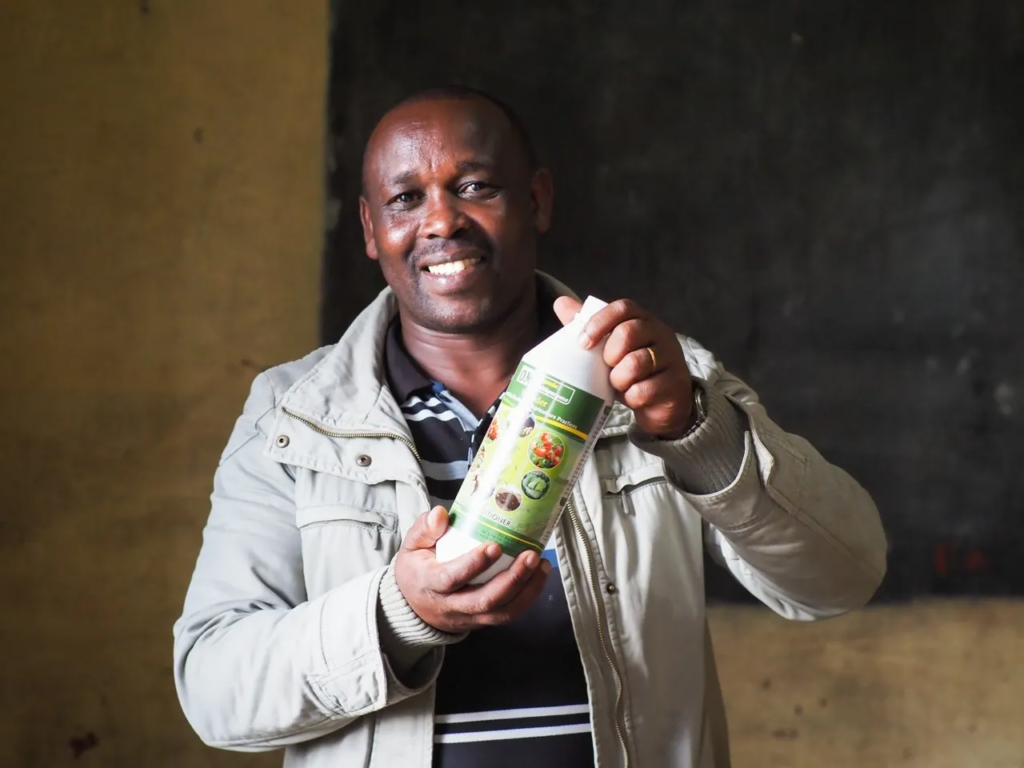
Duncan Ndirangu, of OACK, holds a bottle of organic “soil conditioner” manufactured by his organization. OACK sells this biofertilizer to local farmers at a lower price than the chemical fertilizers peddled by industrial giants. Many of these corporations are seeking to expand by influencing farmers in rural Kenya, where 70% of the population is engaged in agriculture. OACK is a member of PELUM Kenya.
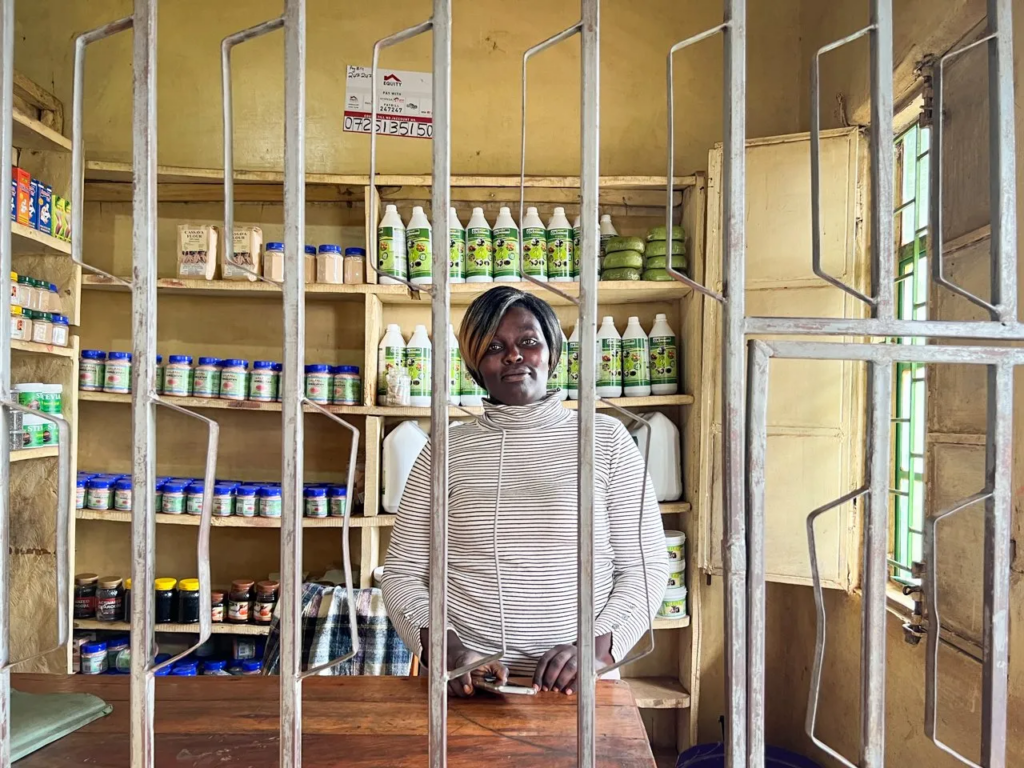
Gladys sells OACK’s biofertilizer, as well as other organic products at her small shop at Kangari Market Centre in Muranga County. The grassroots group’s product is extremely popular with local farmers, and OACK’s already impressive operation can barely keep up with demand. Duncan Ndirangu emphasized the pressing need for more affordable credit options in order for OACK to grow and to coax local farmers away from the short-term — and ultimately counter-productive — ‘solutions’ offered by chemical fertilizer companies.
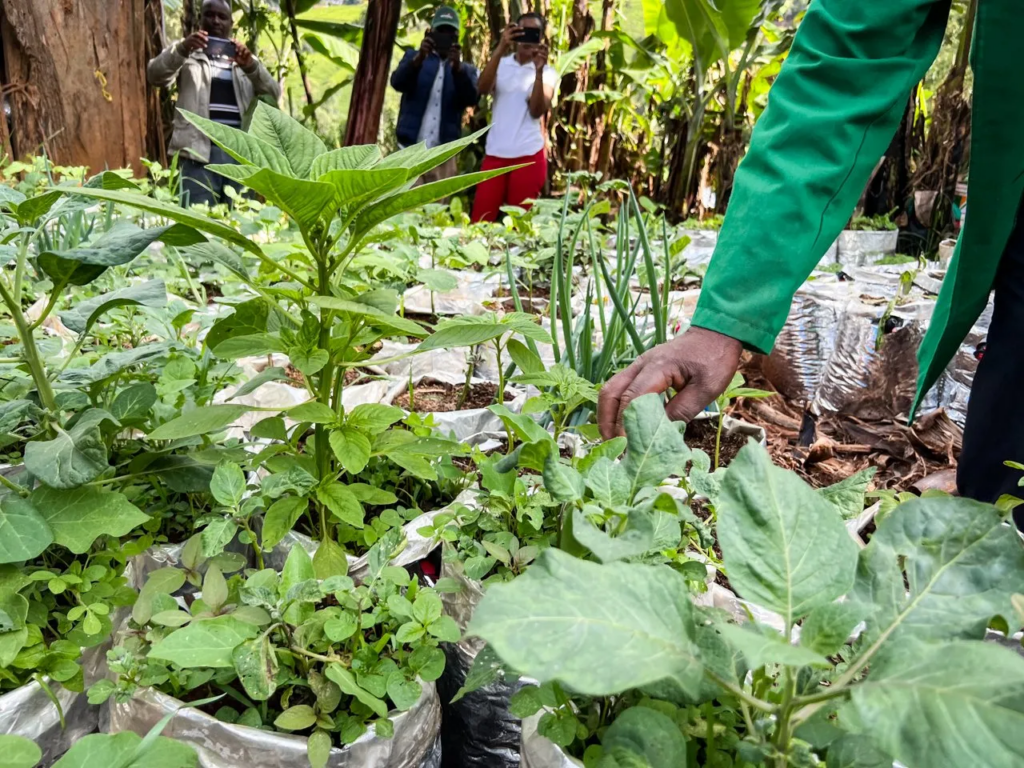
At his farm, which is spread out over several levels around his house, Samuel Maina practices mixed organic farming, producing dozens of varieties of fruits, vegetables, and herbs, including guava, chamomile, and oregano.
Samuel belongs to the Kangari Organic Marketing Group, a local network which grows, processes, packages and sells organic produce. He is supported by OACK and PELUM Kenya.
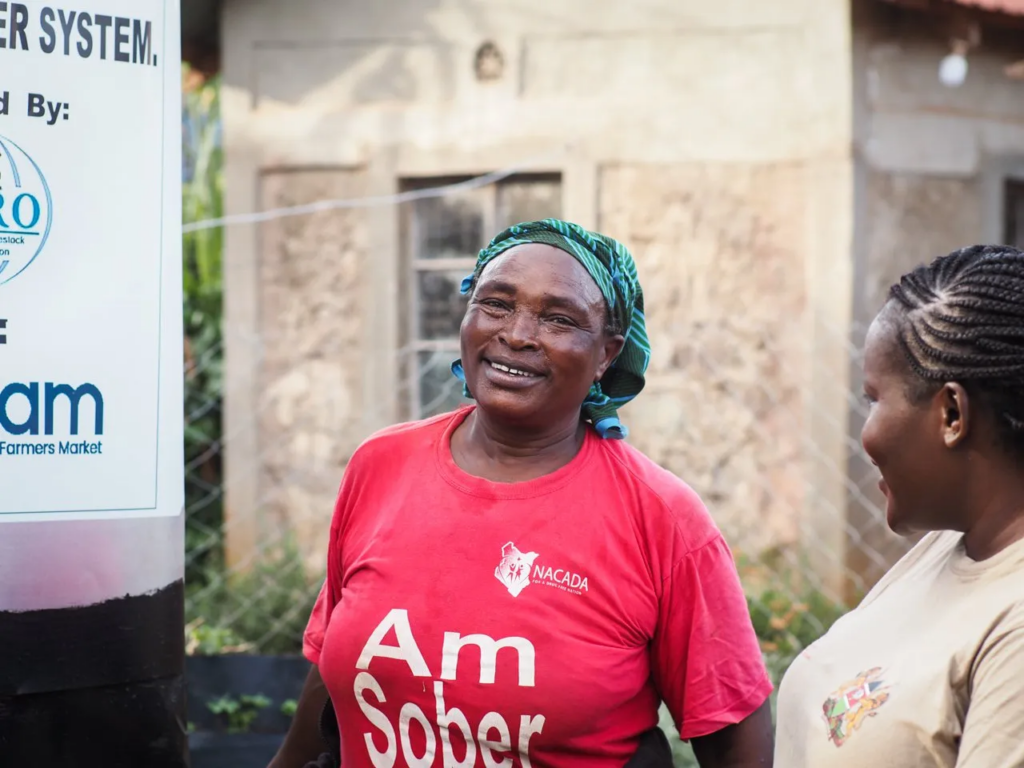
Beatrice Nyambura lives and farms on the hill opposite Samuel. She, too, is part of the Kangari Organic Marketing Group. Her farm in Gakuyu Village, Muranga County, includes a solar tunnel dryer which local farmers pay to use.
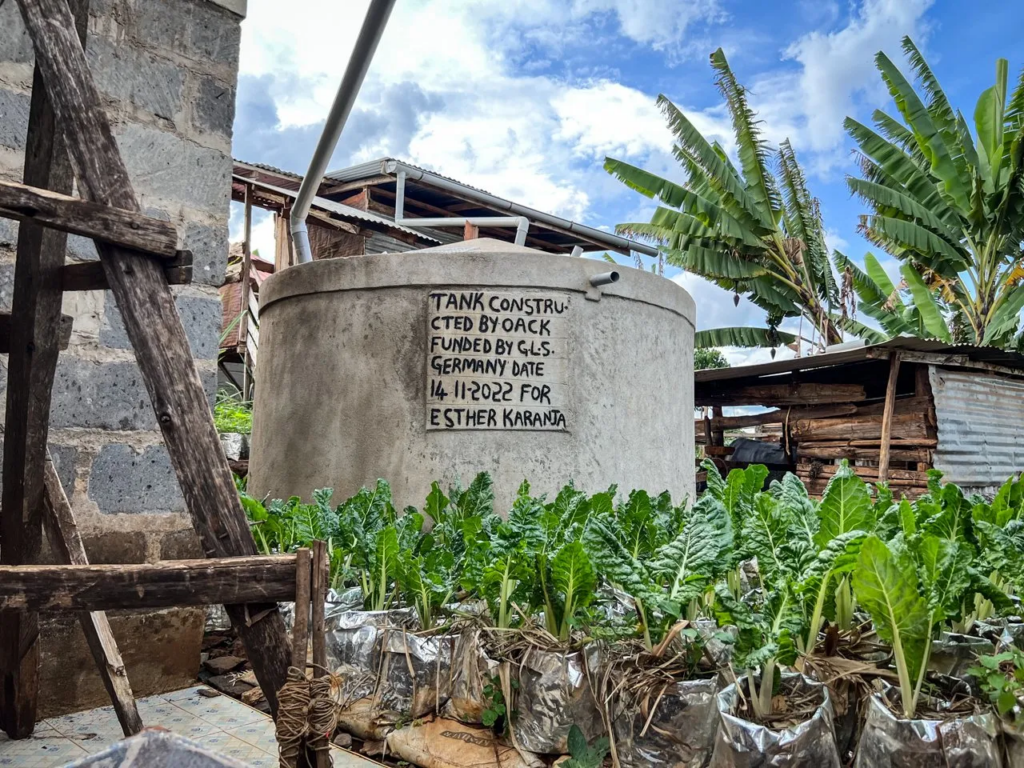
Beatrice’s farm is supported by OACK, who last year constructed a water tank for her to help during a period of intense drought.
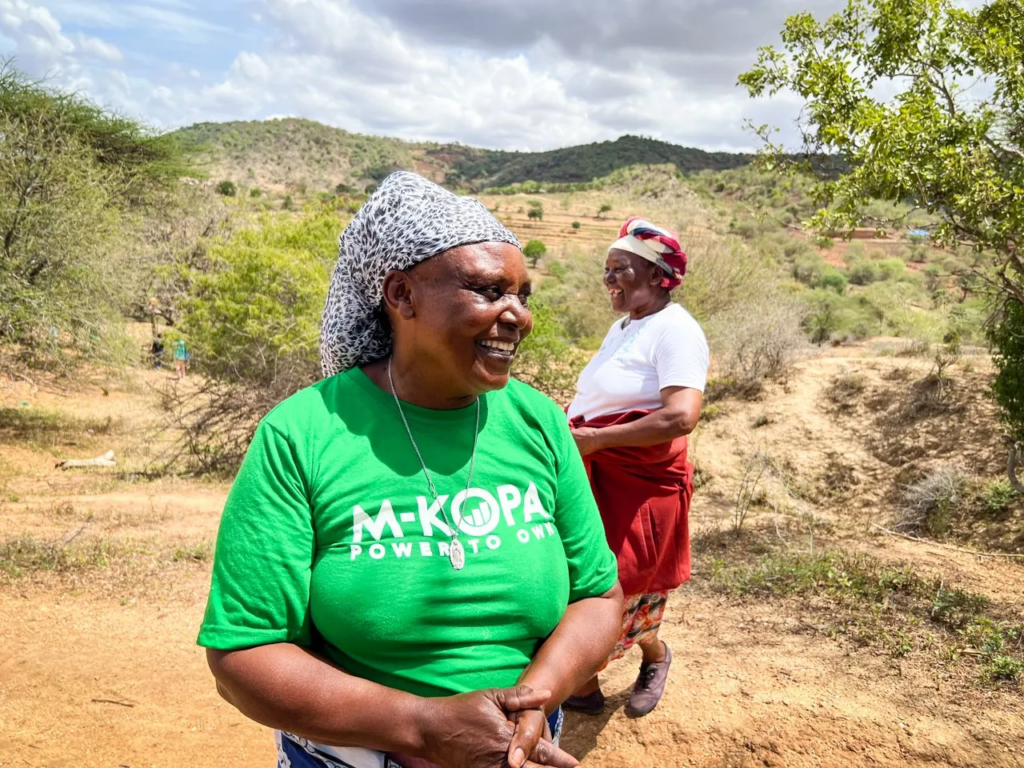
Peninah Mckenzie (above, left) and Dorothy Nzisa (above, right) are members of the Mwende Women Collective. Their work is supported by the Kenyan Peasants’ League (KPL), a farmer movement whose primary goal is to “promote peasantry and agroecology as a means to ensure food sovereignty.” KPL’s members are organized in “clusters” or “collectives,” to ensure solidarity and joint production.
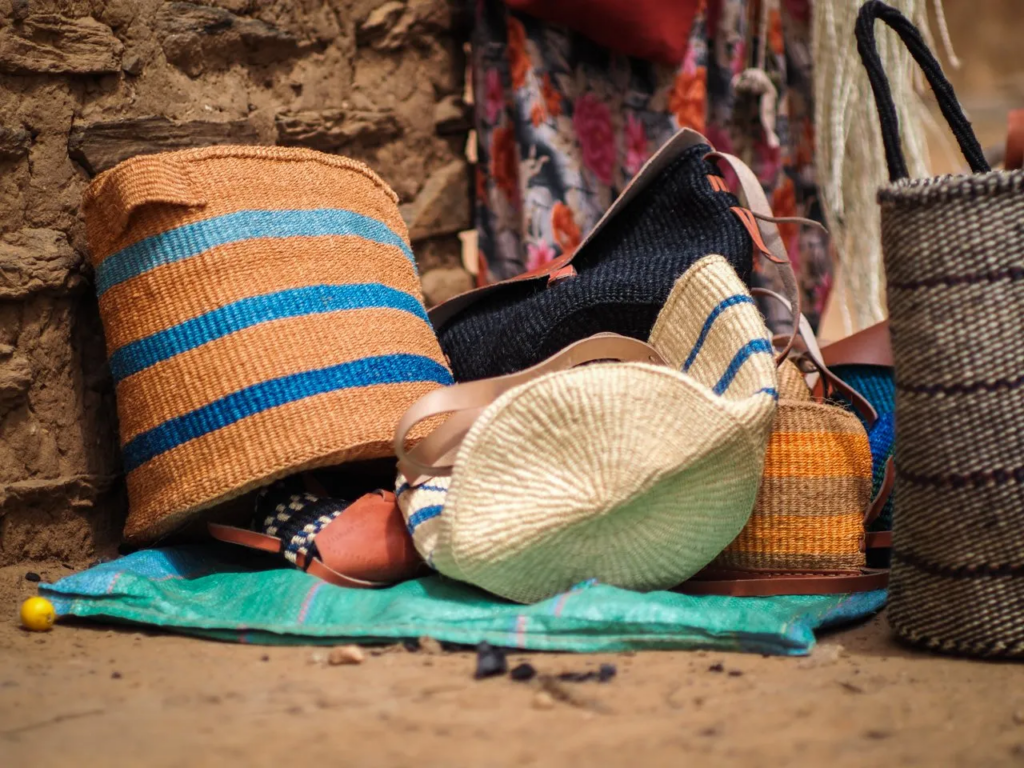
Peninah and Dorothy weave baskets and bags from natural fibers and leftover dried produce. Their products are now being sold internationally.
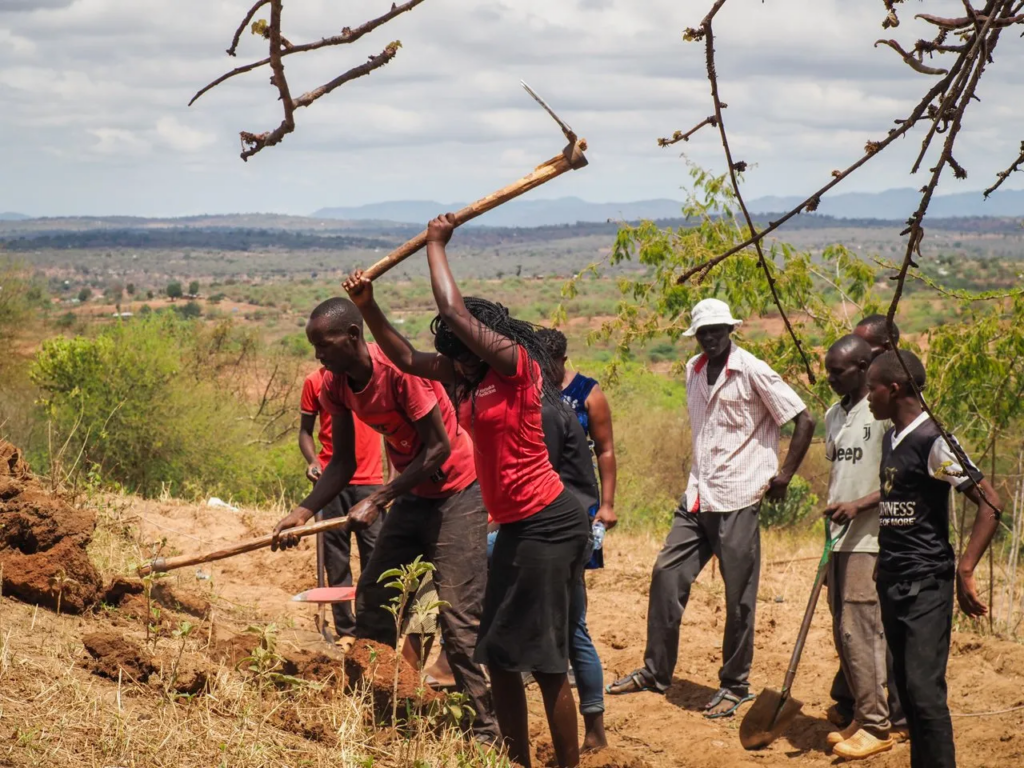
KPL also supports the Mwende Munyanyau Cluster, a group of local farmers who are practicing land restoration through terracing and water conservation.
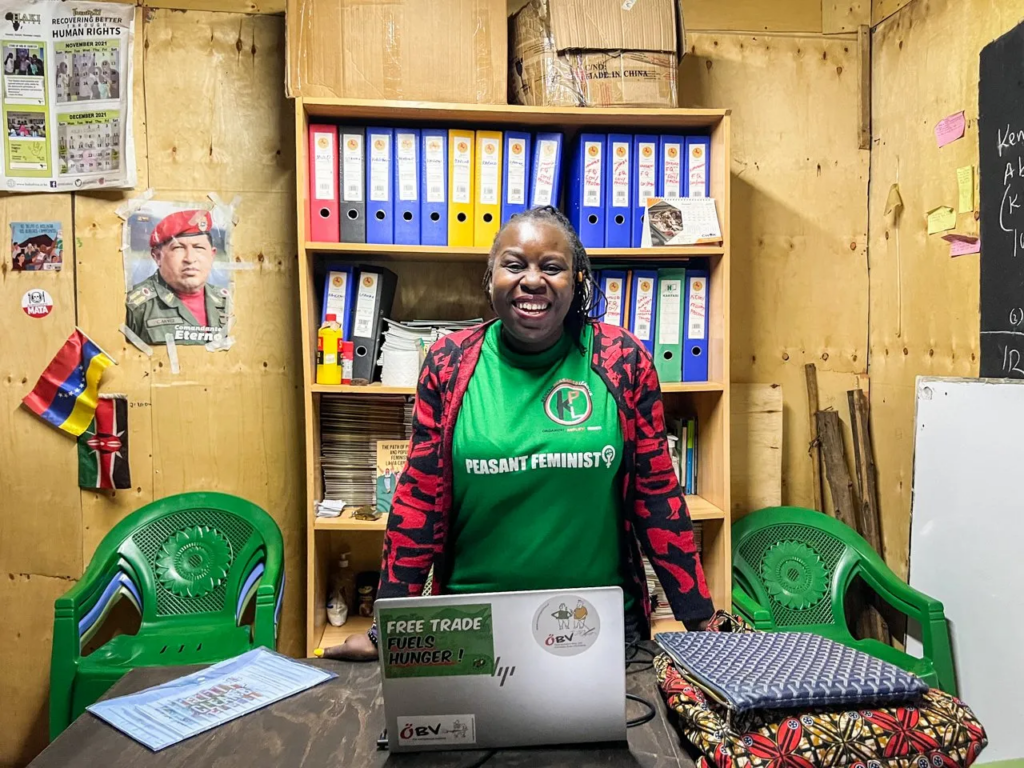
Susan Owiti, Secretary of the KPL Women’s Collective, manages a program which offers free accommodation for vulnerable peasant women, including widows and domestic abuse survivors. The program also offers training in organic farming, providing the women with long-term, practical knowledge and skills.
Due to the nature of KPL’s work, those involved with the group face serious security risks, including online hacking and threats to their personal safety.
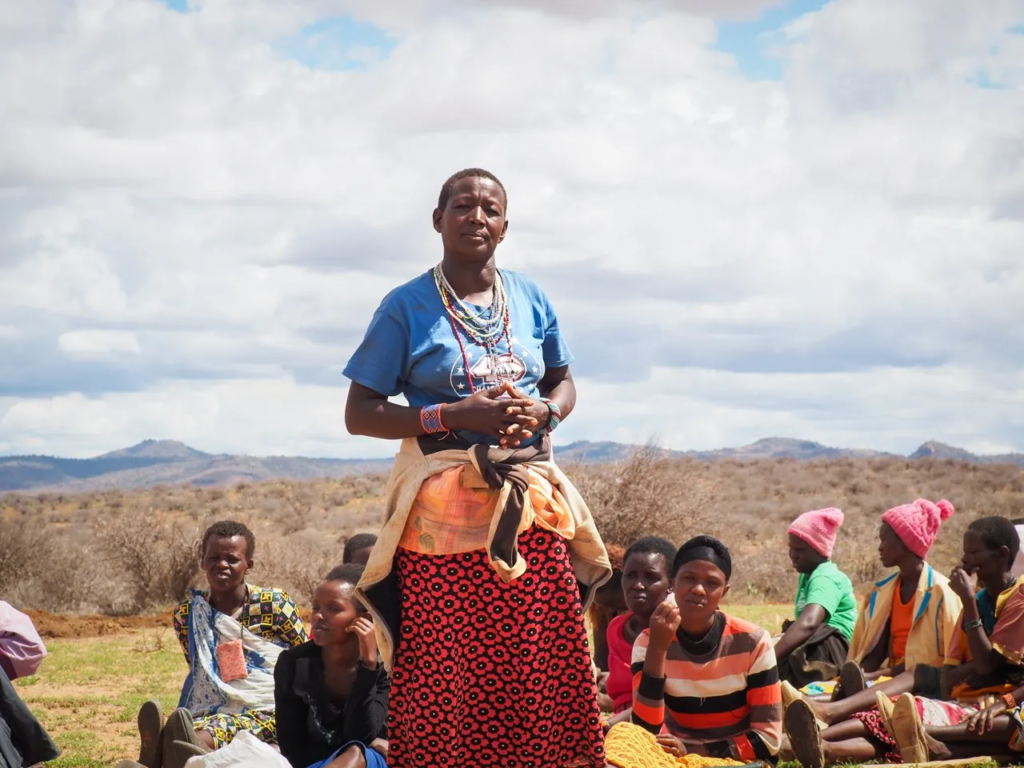
Here, Nteleyo Saikong, a Mayianat-Maasai community member, addresses her community in a discussion about land restoration and reseeding in Makurian. These Indigenous people are historically pastoralists — communities whose way of life revolves around breeding and herding livestock such as cows and goats, typically in extensive grazing systems.
But nearby conservation efforts — including exclusive, private resorts — have fenced off large areas of these communities’ pasture lands. This has, in turn, upset the natural cycle of grazing and restoration — a delicate balance which pastoralists have maintained for centuries.
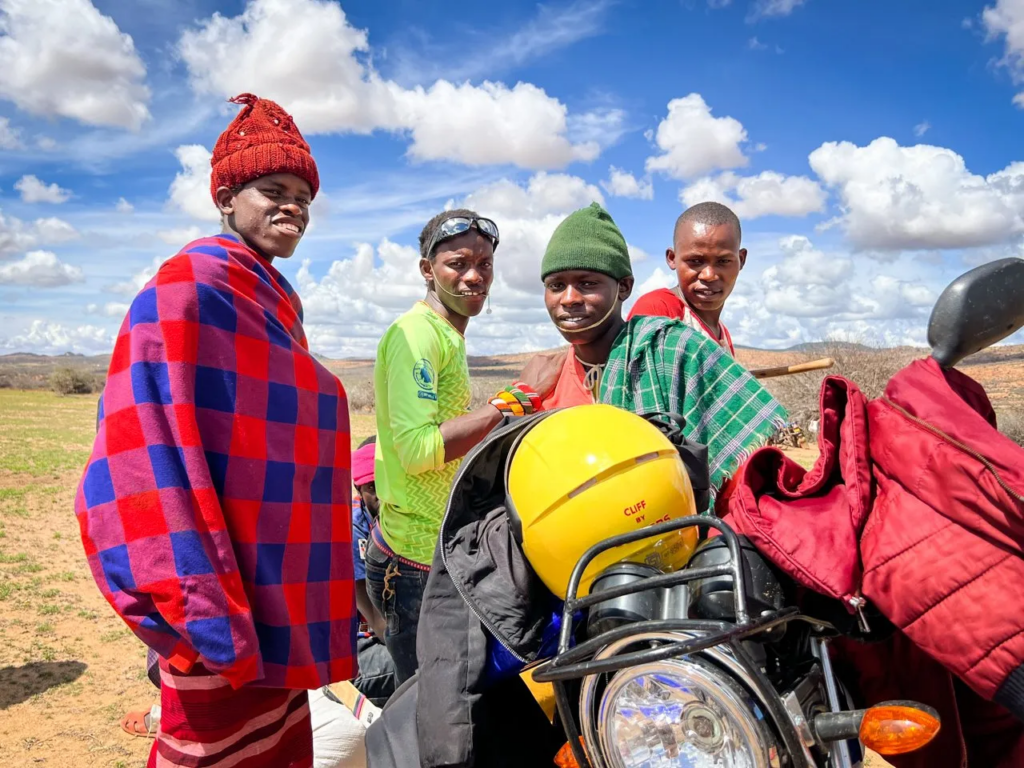
Indigenous youth here face increasing pressure to migrate to urban areas, and to turn away from traditional practices which some consider “backward.”
Mali Ole Kaunga is the founder of the Indigenous Movement for Peace Advancement and Conflict Transformation (IMPACT) in Kenya, and works with these communities to secure their rights, support their land stewardship, and fortify their food security. Mali stresses the urgency of intergenerational knowledge transfer. “We are losing people to institutions which are designed to undermine them,” he explains.
Lekinyaga Maa (above, far right) is a young musician, who writes songs praising his ancestral land, and describing the unprecedented struggles now faced by his people.
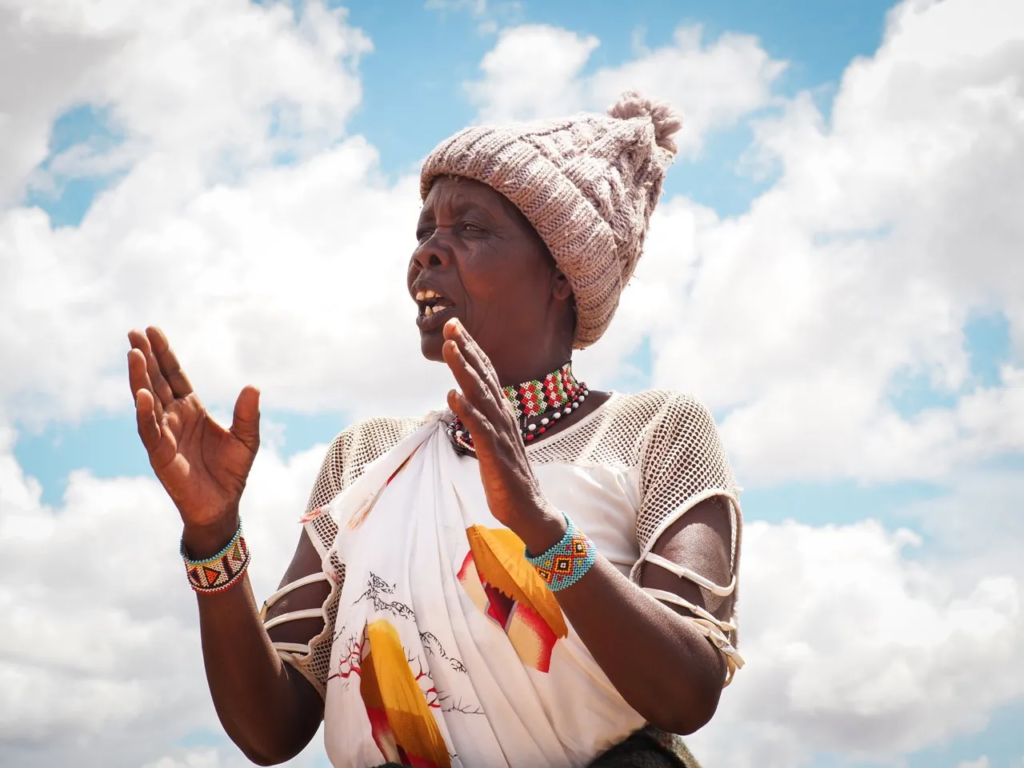
Women in the group emphasized the need for female empowerment in their community and in farming efforts. Here, Joyce Morijoh, Chairlady of Rapunye Cultural Manyatta and a member of the Nyumba Kumi initiative, addresses her community.
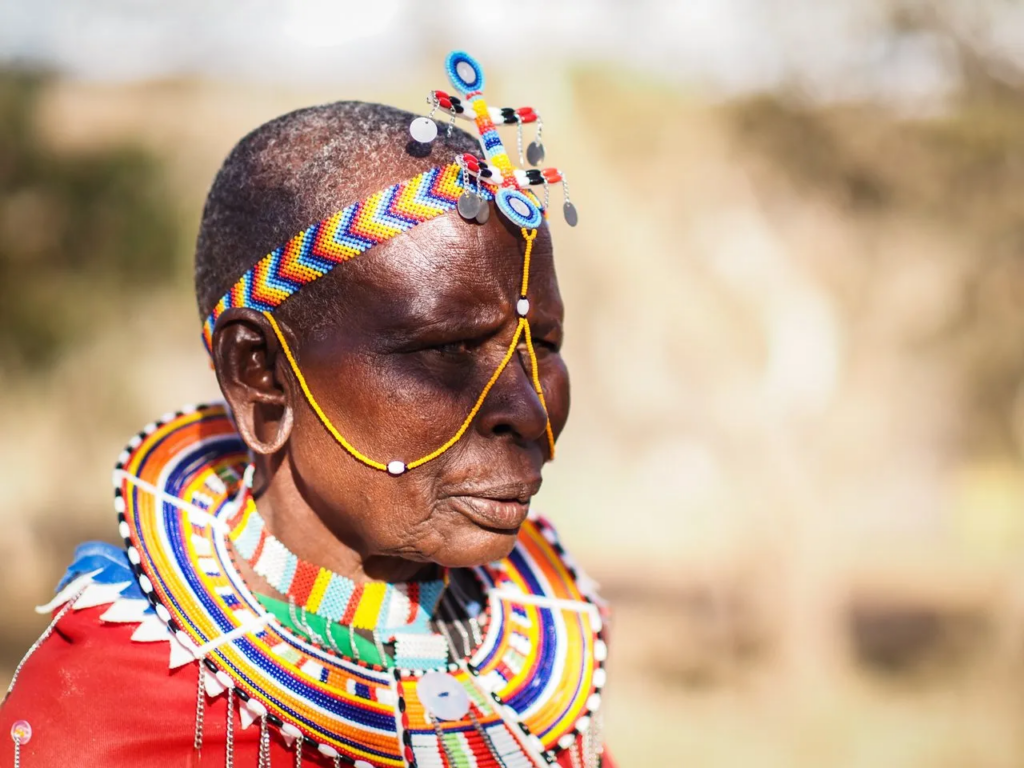
Joyce Mamai is a beadworker and member of Twala Tenebo Cultural Manyatta, which encourages financial independence for Indigenous women through organic farming, traditional practices, and tourist activities such as baboon walks. The group was born out of a need to address female genital mutilation (FGM) and child marriage, which were considered core to the community’s cultural identity. Approximately 90% of the girls in this community once faced these harmful practices — today, they have been completely eradicated. Twala Tenebo Cultural Manyatta’s work is also supported by IMPACT Kenya.
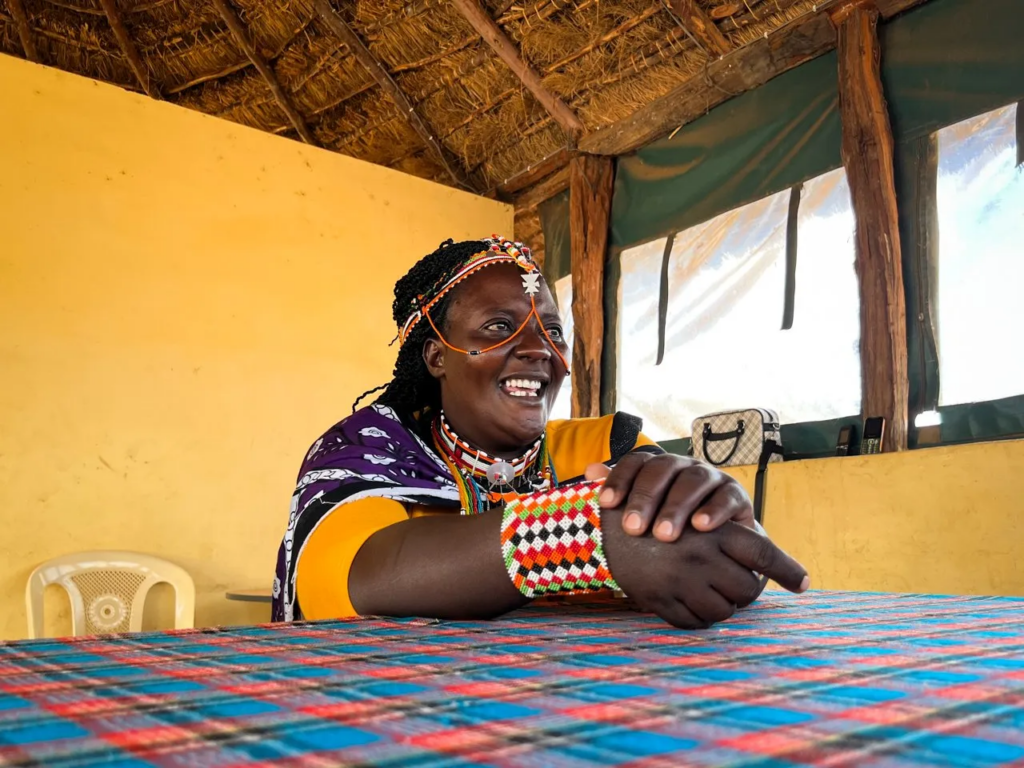
Rosemary Nenini Putunoi, a survivor of FGM and child marriage herself, is the founder and manager of Twala Tenebo. She speaks of how difficult it was to change men’s minds about the deeply-embedded patriarchal traditions which were keeping women in her community oppressed. When trying to educate men away from child marriage she would ask them: “Why are you eating uncooked food where there is cooked food?”
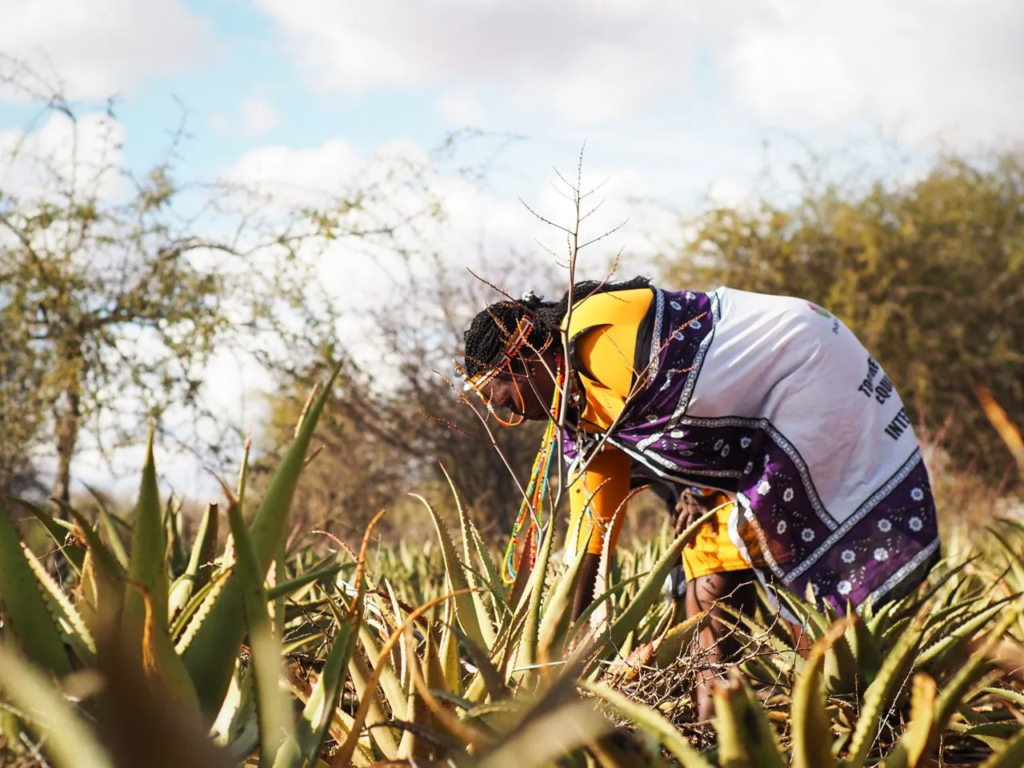
The group’s organic aloe vera farm, one of several agroecological interventions in this community, provides local women with a reliable stream of income.
Having overcome the significant obstacle of community acceptance, they now face another challenge: elephant attacks. Neighboring conservation work has affected wildlife migration patterns and cut animals off from their typical food sources. This puts farmers and pastoralists at a higher risk of animal attacks.
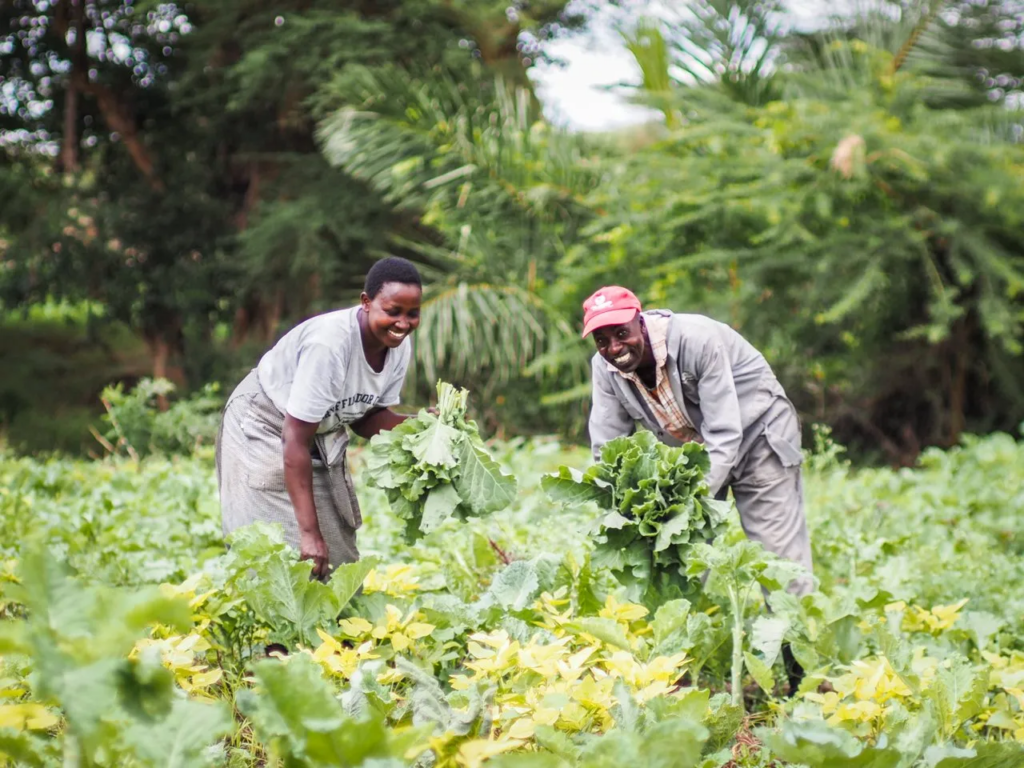
Mworia Mwenda and his wife are beneficiaries of organic farming training conducted by Pastoralist Women for Health and Education (PWHE). They have found agroecological farming to be very fruitful and lucrative. They harvest 500 kilograms’ worth of crops weekly from their three acres of land.
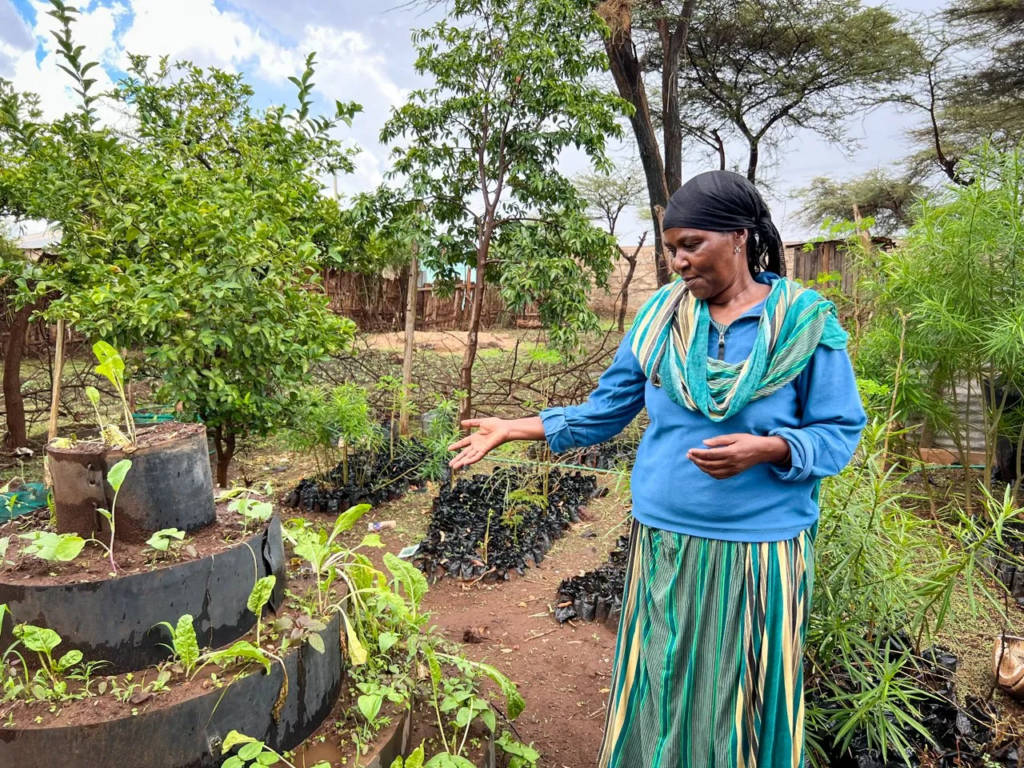
Sadia Mohamed, a Matendo Women chairperson, has started practicing organic farming at her compound in Kambi Juu, with support from PWHE. She has planted an extensive kitchen garden, complete with zero-grazing goats.
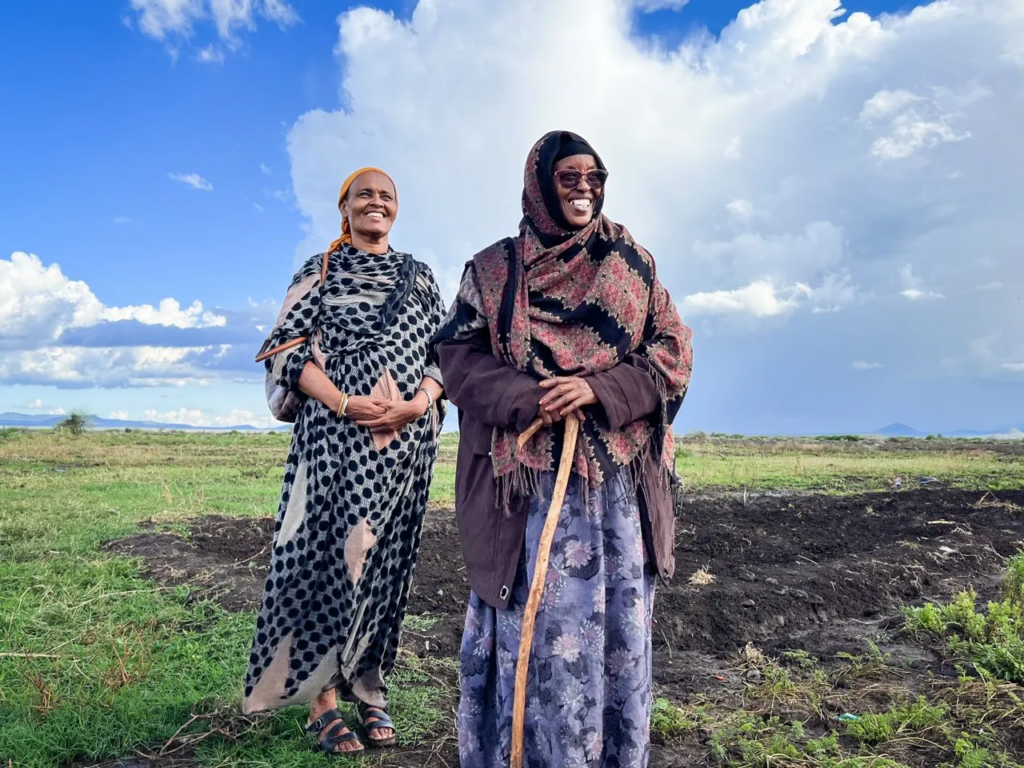
PWHE also supports food producers who are at the very beginning stages of agroecological farming. This starts with education. Mumina Jillo Konso (above, right) is a former member of the County Assembly. While she is from a pastoralist community, she also owns a 32-acre farm. Shoba M. Liban (above, left), PWHE’s CEO, knows Mumina from political circles, and has been encouraging her to transition to agroecology.
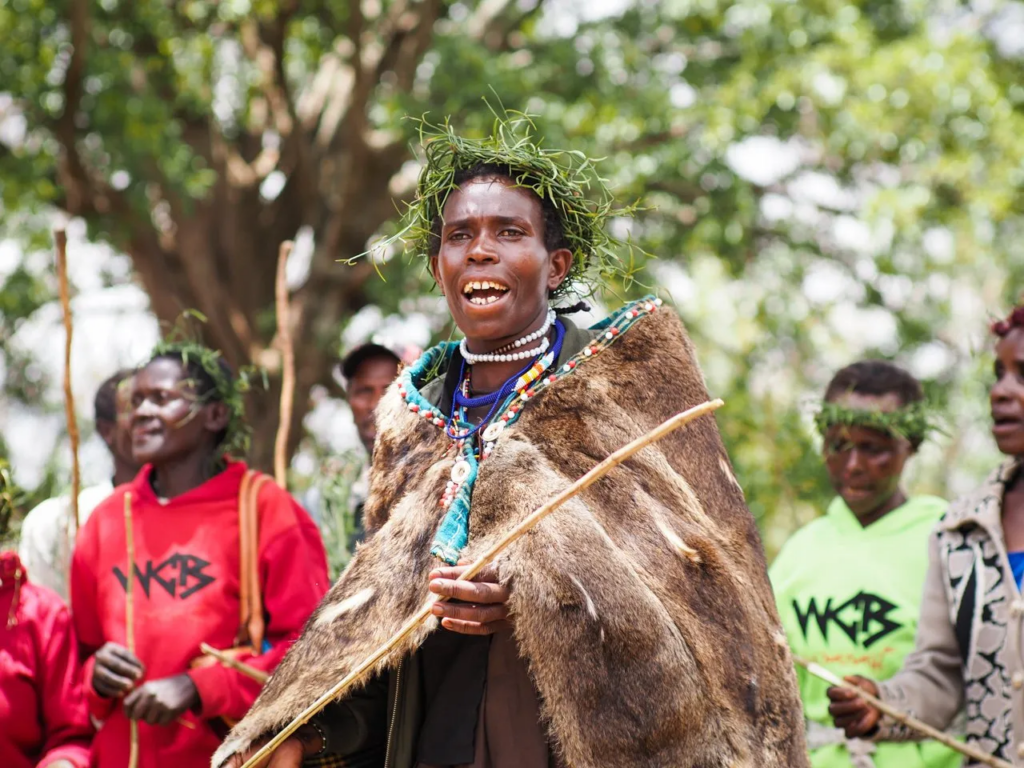
Indigenous groups in Kenya such as the Ogiek (above, with Maines Chebet, leader of the Logumek Women Group, in the forefront) are often overlooked — and, at times, aggressively marginalized. Despite their historical role in maintaining the land, they are excluded from local and national decision-making and policy development surrounding agriculture.
This Ogiek community in Nessuit is supported by the Ogiek Peoples’ Development Program (OPDP), an organization which defends the rights of Indigenous Peoples. OPDP is currently finalizing legal proceedings against the Kenyan government, whom they are suing for reparations for the displacement of Indigenous groups in Kenya.
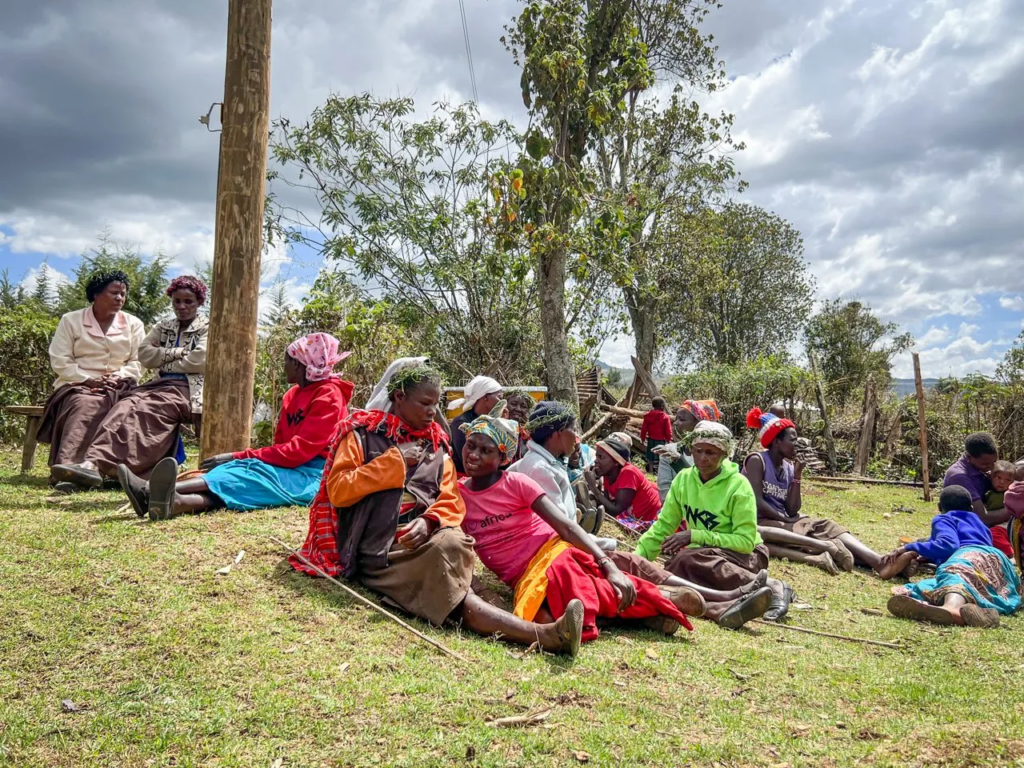
This community in Nessuit has a strong female farmer presence, named the Logumek Women Group (members pictured, above), who received indigenous vegetable seeds as part of OPDP’s agroecology project. However, due to an extended drought, they have struggled to produce crops. Their beehives, too, are empty.
Many of the men in this community are engaged in conventional agriculture, growing maize, potatoes and beans with chemical fertilizers.
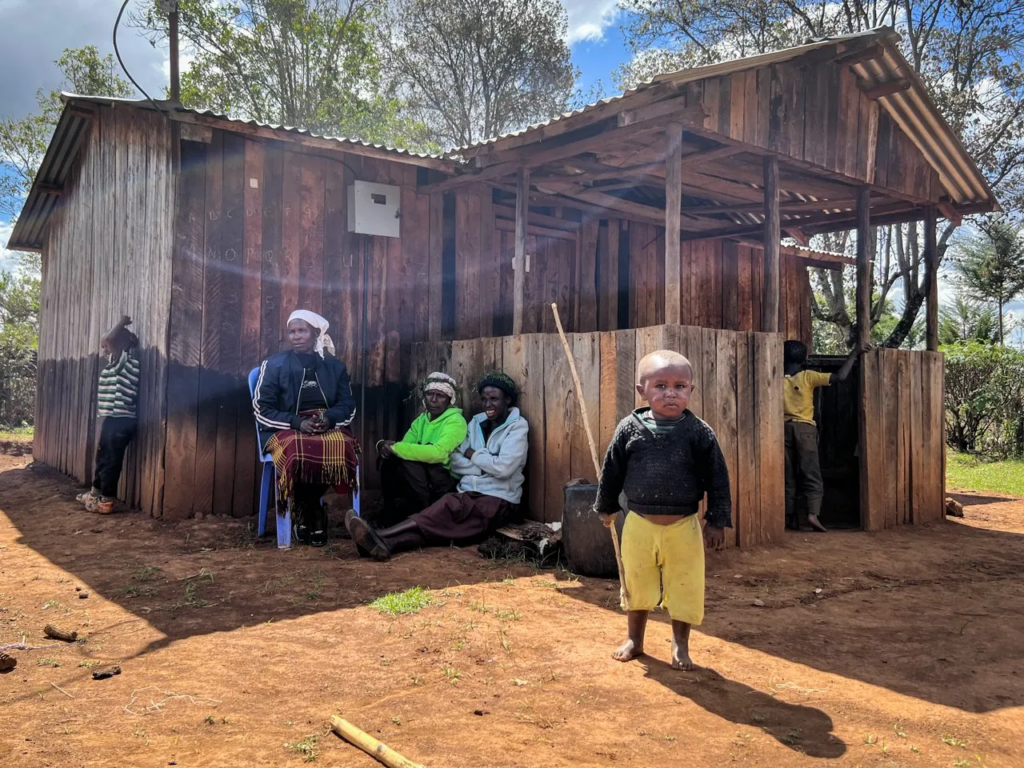
The community’s soil is so degraded that the women feel they now have to follow suit and to resort to using chemical fertilizers in order to produce a yield significant enough to sell. They have decided to use manure only for the small kitchen gardens that feed their families.
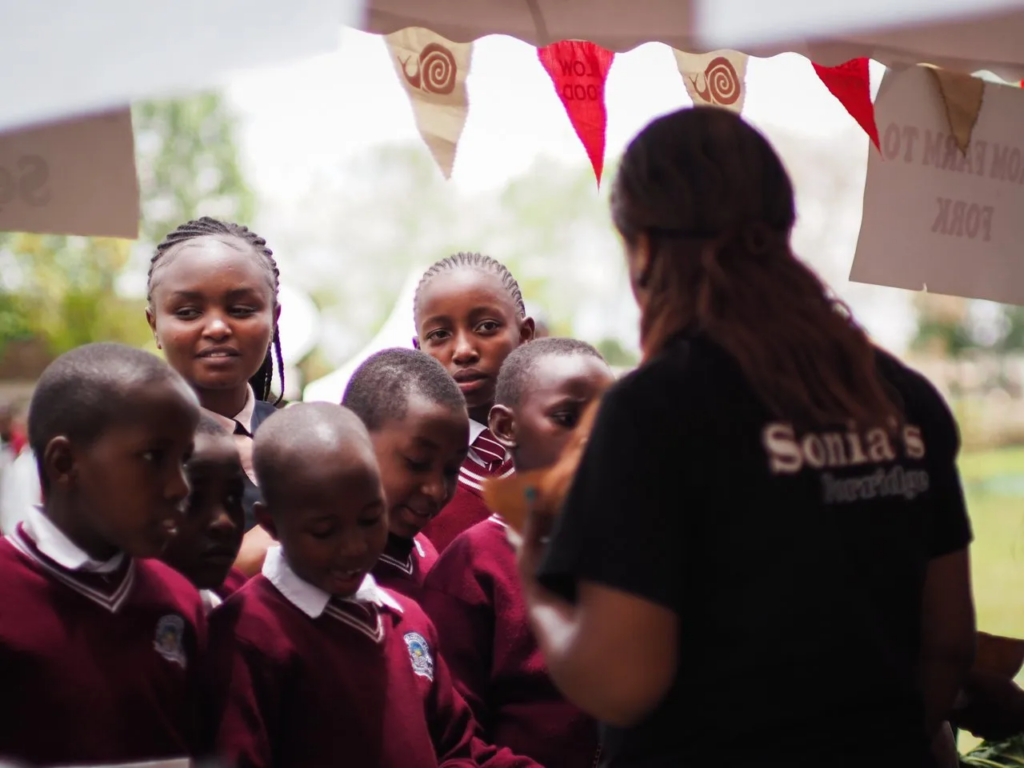
Here, schoolchildren attend a farmers’ fair organized by Slow Food Kenya to learn more about agroecology. At this stand, Florida Muthoni (nicknamed “Sonia”) speaks to the children about her involvement with organic food production.
Slow Food Kenya is an affiliate of Slow Food International, a global, grassroots organization which promotes food biodiversity and advocates for traditional knowledge-supported food systems.
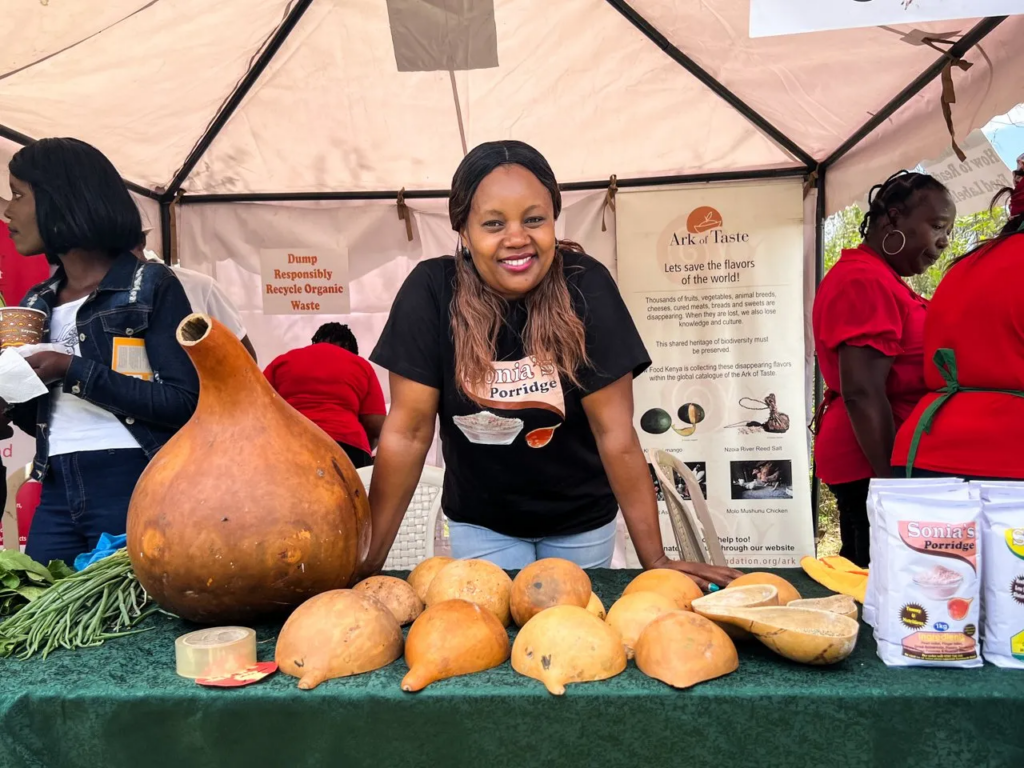
Sonia uses locally-produced, organic ingredients such as pearl millet, roasted groundnuts, and dried arrowroot, to make “porridge,” a hearty fermented drink that she serves in gourds out of her shop in Naukuru town.
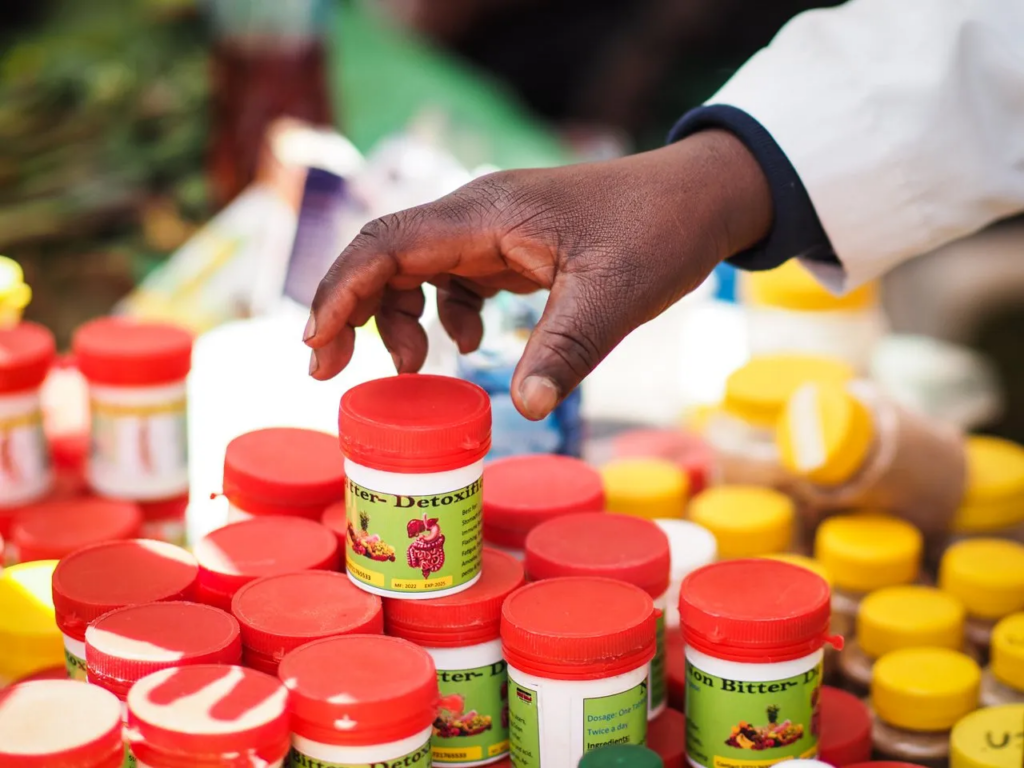
At other stalls, food producers and farmers display organic products – from beans to natural remedies.
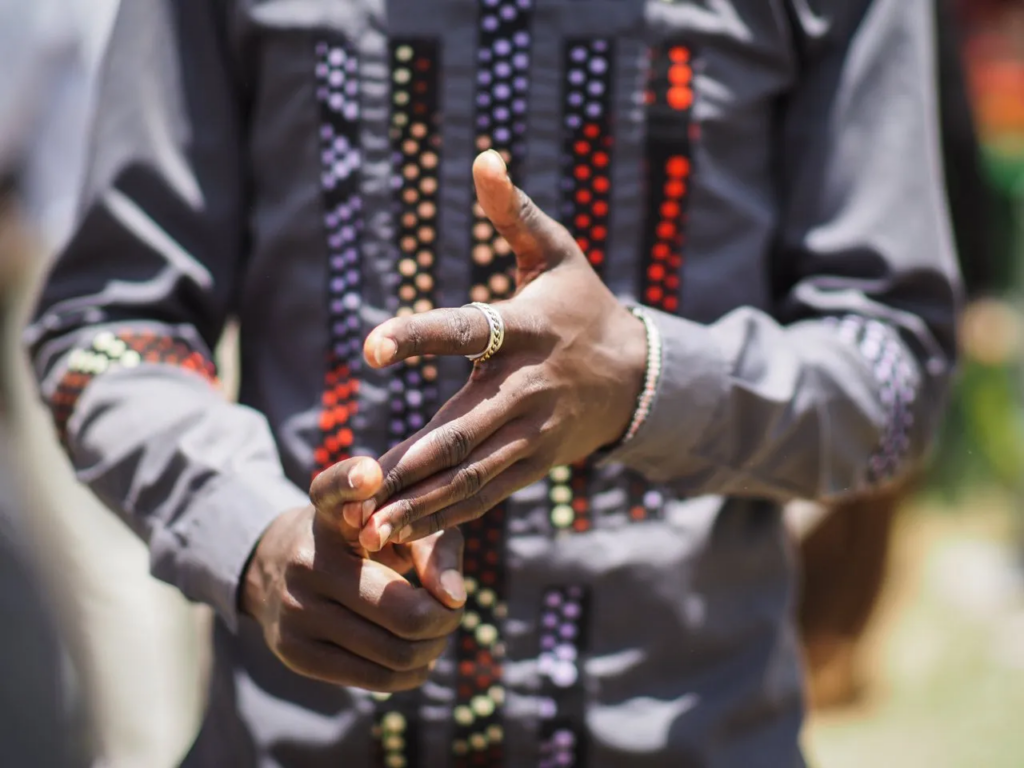
Many of the youth present at the fair explained that they were establishing agriculture cooperatives and producing crops to sell to nearby hotels. One young farmer speaks of his own positive experience of agroecology. While he is a tailor and makes clothes to supplement his income, he sees the long-term value in organic farming.
